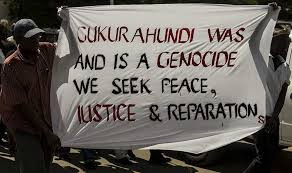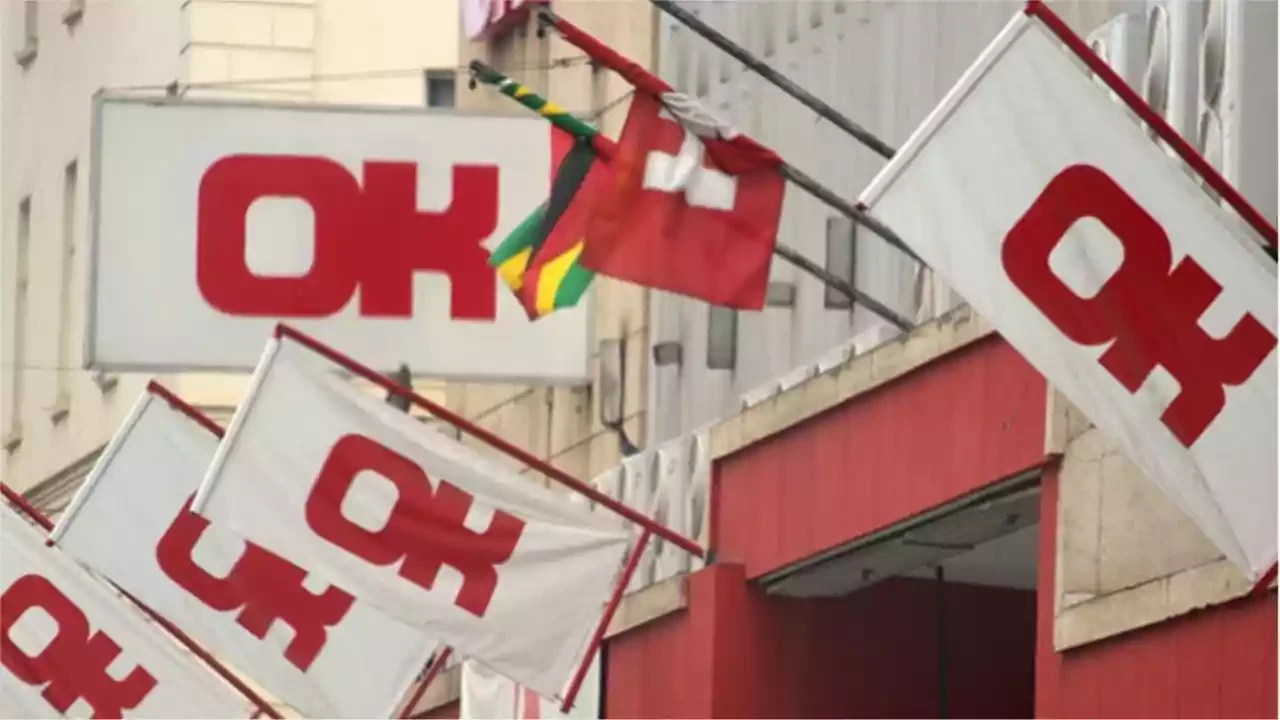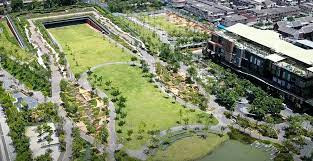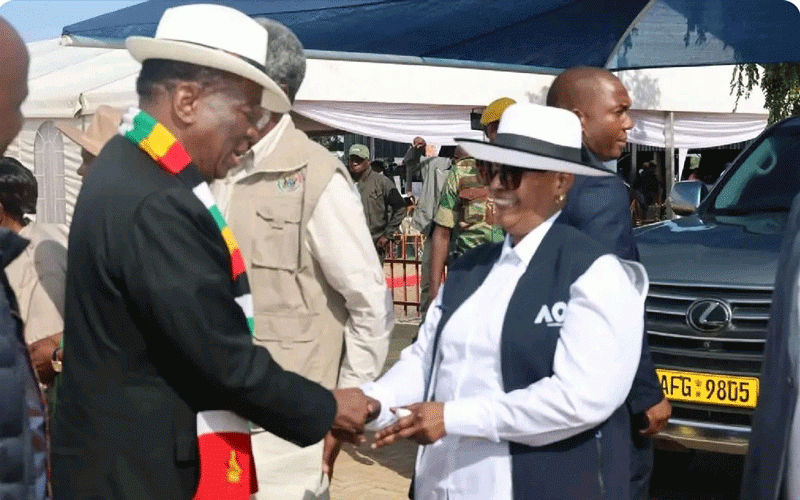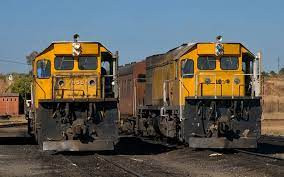
Economic History and Geography both have some lessons which African heads of governments should not miss. As every cent or penny in these impoverished countries counts, prudence is not an option. It is essential.
This requires that every cent is accounted for.
The starting point is that the budget of every public purchase of goods and services for the public sector must be well costed before going to tender, so as to adequately inform the institutional, national or local authorities' budgets, subsequent call for bids, and later bids evaluation and tender awards.
There is no point in starting a project, or program whose cost and pay-back/ cost recovery period is unknown.
Yes, there will be cost over-runs here and there, but this must be the closely monitored exception rather than the rule.
Last year, for example, the WHO flagged road traffic accidents (RTA) in Zimbabwe, as a matter requiring urgent attention by government.
The response from government was not exactly coherent. But it may account for the large donation of helicopter ambulances received from Russia.
After 22 souls lost their lives in an RTA on the Beitbridge to Bulawayo highway this November 2023, the President of the republic has repeated the call for action started by WHO.
- NRZ demands stiffer penalties
- Sadc railways commemorate safety week
- Interview: ‘Locomotive tourism’ back in style
- NRZ loses US$17k property to theft, vandalism
Keep Reading
He called on all his officers involved in managing the transport sector to address the problem, and reduce the fatalities. But who are these officials? And how should they go about it?
Zimbabwe's RTA death toll on a capita basis is one of the highest in the world. It is a tragic shame that because of the magnitude, is a matter of public health. Well managed rail transport is a lot cheaper, greener and a lot safer than road transport.
Getting the NRZ back on its wheels should be one of the Government of Zimbabwe's highest priorities as far as national infrastructure reconstruction and development is concerned.
It should certainly be in the top five, alongside increasing and up-grading power generation and transmission, and upgrading of urban sewage works and water supply capacity.
About five Zimbabweans on average die daily on Zimbabwe's roads due to RTAs. Most of these deaths would be avoided if two overnight passenger trains would leave Harare and Bulawayo respectively for Johannesburg, at the same time as two other trains leave Johannesburg for the two Zimbabwe cities.
The overnight and, or daily trains from Harare to Bulawayo, Mutare and Masvingo, and vice-versa should be restored, as should be the Bulawayo to Victoria Falls, and Bulawayo to Gaborone ones.
Let us take our long distance passenger and cargo off the roads, and on to the safer, greener and cheaper rail transport.
The business case for that is crystal clear. The funding is substantial of course, and the payback period long.
The project therefore requires massive government financial support, leadership and promotion.
Virtually the entire 2 700km of Zimbabwe's rail tracks need rehabilitation for optimally safer and more efficient services. Neglect of essential maintenance, repairs and renewals of the rail - roads, rolling stock and locomotives over the decades, has taken its toil on the NRZ, to a point where a concerned World Bank study called for the entire NRZ operation to be halted on safety grounds, pending track, signaling equipment, rolling stock and locomotive rehabilitation, up-grade or renewal.
Behind the decay of the NRZ has been both ministerial and managerial incompetence. The tariff / fare book usually approved by a cabinet minister was always out of date by the time of printing, political expediency, rather than proper costing, determining the quantum of the tariffs, which, inevitably, were below cost recovery.
Basically the same cost accounting weakness, exacerbated by bouts of hyper - inflation, is behind Zimbabwe's dilapidated infrastructure and illiquid or bankrupt state owned enterprises.
These range from the likes of Air-Zimbabwe, the CSC, GMB, road and housing stock, Zisco, Zesa and Zupco.
The rationale for the formation of the Mutapa Investment Fund, removing SOEs from line ministries to a special purpose vehicle, may be to address this universal short-coming of poor accounting, besides, of course, poor corporate governance.
The auditor general's shocking reports on SOEs confirm the fact. Halfway through writing this affidavit on behalf of the close to 2000 souls that perish on Zimbabwe’s roads annually due to RTAs, I am cheered by some good news.
On November 23, 2023, President Emmerson Mnangagwa, as the story goes, was the guest of honour, in Manica, Mozambique, as that country's president, Felipe Nyusi, presided over a ceremony to re-,commission a 318km rehabilitated stretch of railway line from the Port of Beira to Machipanda / Forbes Border Post.
The reported cost for the rehabilitation was US$200 million. Prudently therefore, a US$ 2 billion budget might cover the rehabilitation of Zimbabwe's 2 700 km of rail, half of which could be sourced from the private sector.
It is worth noting some 300 to 500 heavy trucks are currently passing through the Forbes Border Post daily.
They could all be replaced by a dozen trains per day — one every two hours — greatly reducing traffic density, and hence accidents, on the Harare, Mutare to Beira Highway.
I am further cheered by the fact that in his speech, as guest of honour, thanks to his status as head of state of Mozambique's blessed but self-impoverished western neighbour, Mnangagwa mentioned, among other things, that rail transport is cheaper than road transport.
Hopefully that should be enough for a panel of mandarins drawn from a cross section of relevant government ministries, departments and agencies to knuckle down and work on a socio - economic agenda with its backbone being up-graded and expanded capacity in coal and iron ore mining, steel making, (bulk commodities requiring rail transport) power generation, transmission and distribution, and of course, rail transport.
The cost accountants and engineers from the Ministry of Transport, working together, with the ministries of Finance, Home Affairs, Mining, Agriculture, Industry and Health, should be able to put together a bankable integrated document for the adequate re-capitalisation of the likes of the NRZ Zesa, HCCL, Zisco, and water treatment and sewage works, so as to competently answer concerns noted above by the World Bank, the World Health Organisation and now echoed by none other than the head of state.
Why the integration of various projects one might ask?
The short answer is to increase bankability through de-bottle-necking, increasing local demand, and vitally, exports-all in a quest to raise total factor productivity and earn foreign currency to support the value of a credible local currency, and to repay foreign loans/ debts by harnessing world class economies of scale.
As individual projects bottle necks such power and rail transport shortage are already aborting and crippling mining ventures, while lack of bulk cargo would make re-habilitation of the NRZ an uphill task.
With Mozambique having taken the lead in up-grading its section of the Harare to Beira Rail Corridor, Zimbabwe should do its bit.
As a massive bonus, it will save priceless lives lost on our over loaded highways to RTAs. As the search for solutions to loss of life and injuries suffered in RTAs progresses, the idea of establishing an RTA victims fund may be mooted.
This is not exactly a good idea, unless it directly impacts on drivers of passenger carrying vehicles as well as owners of those vehicles.
An insurance product that pays out at least US$100 000 for each fatality from a RTA by the operator / owner, if his / her driver of a for-fee passenger or cargo vehicle is culpable, might go some way towards improving professionalism / corporate governance in the road transport industry. Drivers too, when culpable, should see their own insurance taking care of the first US$ 20 000 in damages.
Accident free driving / operations over a stated period or quantified distance ought to be rewarded by a reduction in insurance premiums.
Other efforts may include re-launching the ZRP's once mobile and proud Highway Patrol Unit. And, yes there is a place for a few helicopter ambulances too.
Last but not least, progress in our projects implementation would be much faster if the elephant in the room was persuaded to walk out.
Zidera must be turned around to Zimbabwe's advantage as soon as possible. It can be done.
*Tapiwa Osbert Nyandoro (B. Pharm (Hons), UZ -1980) is a pharmacist by training. He holds a Pharm (Hon) degree from the University of Zimbabwe.
These weekly articles are coordinated by Lovemore Kadenge, an independent consultant, managing consultant of Zawale Consultants (Private) Limited, past president of the Zimbabwe Economics Society (ZES) and past president of the Chartered Governance & Accountancy Institute in Zimbabwe (CGI Zimbabwe) . Email- [email protected] or Mobile No. +263 772 382 852

